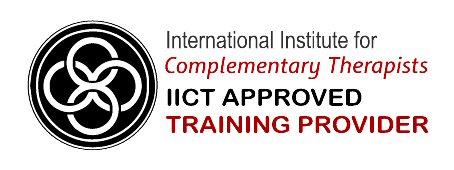What is nutritional therapy?
Naturopathic nutritional therapy is a form of alternative medicine. It should never be confused with dietetics or ‘nutrition’. There are two important differences. A nutritional therapist carries out a diagnostic procedure and works towards a therapeutic goal. In other words, he or she tries to answer the questions ‘What is making this person ill’ and ‘What can I do to get them better?’ A dietician’s job, on the other hand, is to carry out a doctor’s instructions and to advise on healthy eating in accordance with official guidelines. The doctor makes the diagnosis (anaemia, irritable bowel syndrome and so on) and refers the patient to a dietician for a diet high in iron or a high-fibre diet. Some dieticians work in hospitals, for instance giving patients with severe liver or kidney disease diets to manage these conditions, that is to say diets to help them cope with the disease.
Nutritional therapists rarely see such seriously ill people. They hope that people will come to them when the first small symptoms begin and there is a better chance of reversing them. Unfortunately a trip to the doctor at this stage may result in negative tests and a reassurance that nothing is wrong. So no action is taken and people who are tired all the time, or who have bad skin, digestive problems, headaches or female complaints frequently try instead to ignore their symptoms because they don’t want to be thought of as time wasters.
Nutritional therapy is best before a disease sets in
It is probably true in a lot of cases that you would be wasting your doctor’s time if you continue to complain about problems like these after being told that nothing is wrong. Your doctor is looking for an identifiable disease, for which the textbooks specify a definite treatment, usually involving drugs or surgery.
In alternative and complementary medicine we take small symptoms as a sign that the body’s health is for some reason under assault. There can be many different reasons for this assault, including stress, poor eating habits, wear and tear, a slow build-up of toxic waste substances, allergy or intolerance to certain foods or environmental factors, chronic infections, self-abuse with excess alcohol, caffeine or other drugs, poor alignment of bones or joints leading to pressure on blood vessels, nerves or spinal cord, or poor digestion leading to nutritional deficiencies.
Finding the causes of illness
The complementary medicine practitioner is a bit like a professional TV repair man. He or she carries out a diagnostic procedure not to name a disease but to try to identify the cause of the malfunction before recommending how to put it right. So just as 100 different TV sets may need 100 different spare parts even though the symptoms are the same, people should have individualized treatments according to the cause of their illness. After all (as some wise person said) the human body can only suffer from a limited number of symptoms, but there are an infinite number of possible causes!
More than just ‘diet and supplements’
There is a big difference between nutritional therapy proper and self-help using diet and supplements. Naturopathic nutritional therapy requires a specialist practitioner with training in physiology, biochemistry and pathology as well as naturopathic techniques, nutrition and the principles of environmental medicine. The practitioner uses this extensive knowledge to determine an individual’s possible nutritional needs. On its own a doctor’s diagnosis is not usually of very much help in designing natural health programmes.
To take an example, while some studies have shown that evening primrose oil is beneficial for a doctor’s diagnosis of eczema, you may very well find that your eczema does not improve very much when you try taking evening primrose oil. Similarly magnesium supplementation has been found to lower blood pressure in some clinical trials, but books containing this information probably won’t mention the other clinical trials where magnesium didn’t work.
The fact is, only allopathic medicines are designed for use with a medical diagnosis. Evening primrose oil is not a medicine, it is a nutritional product, and as such it can only treat deficiencies of the nutrients it contains, in this case gamma linolenic acid or GLA. Exactly the same applies to magnesium and other nutrients.
Interested in learning more about naturopathic nutritional therapy? Read about our training course.

